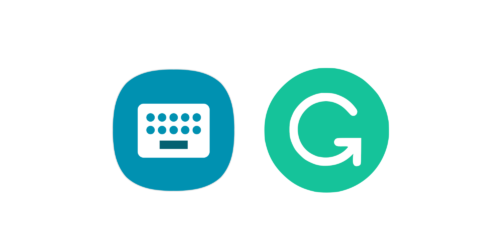
Building Educator AI Literacy
AI literacy is understanding, using, and critically evaluating AI technologies for various uses in different contexts (Ng et al., 2021). Building AI literacy can help you know more about generative AI (AI), use AI in your teaching, and keep up with new developments in AI and education.
Working with AI at the College
The College does not have a one-size-fits-all policy for permitted AI use. Instead, permitted AI use is determined by Schools, programs, and courses within the scope outlined by Conestoga’s AI Guidelines. For an overview of different levels of permission, see
Perkins, M., Roe, J., & Furze, L. (2024). The AI assessment scale revisited: A framework for educational assessment. Computers and Society (pre-print), pp 1-20.
See these College-focused guidelines and resources.
- The Using Generative AI at Conestoga, a Sharepoint site with guidelines, opportunities to ask questions, and support information.
- GenAI Toolkit for Students (Library and Learning Services): Information and activities to help students learn more about generative AI and how to use it ethnically and responsibly.
- Ethical Uses and Considerations of AI: Pages supporting academic integrity and investigating academic misconduct in cases of non-permissible use of AI.
- Anytime online resources, workshops, and micro-credential courses by Teaching and Learning.
New: See the Generative AI Guidebook for Teaching.
Learning about Copilot and AI
Employees and students have access to the enterprise-licensed version of Microsoft Copilot. Here are some resources to learn about Copilot.
- LinkedIn Learning (free for employees and students): Streamlining your work with Copilot or Copilot for Windows
- Microsoft: Copilot learning hub (curated training, documentation, videos, and other resources)
Take a free online video or text-based tutorial on the basics of generative AI.
- Generative AI Fundamentals by IBM covers the fundamentals of generative AI.
- Google’s Generative AI Learning Path introduces generative AI basics.
- Artificial Intelligence Tutorial for Beginners by Simplilearn is 23 lessons (2 hours of learning).
- A Generative AI Primer by Jisc is a text and image-based blog post that is updated as needed.
- Artificial Intelligence Tutorial by tutorialspoint provides information about AI (requires a basic knowledge of computer science).
- Ultimate Generative AI Glossary (AIPRM, 2024) defines 200+ AI-related concepts and terms. *This resource was suggested by the STEM club for girls, Fullers Library.
Learning about Teaching with AI:
- Udemy offers a one-hour course on AI for Teachers and Educators.
- UBCx (through EdX) provides a 3 to 6 hour course, AI for Teachers.
- MIT Management provides a web-based tutorial, Getting Started with AI-Enhanced Teaching: A Practical Guide for Instructors.
- Coursera offers Artificial Intelligence (AI) for Teachers.
- Harvard Business Publishing Education provides webinars and advice for Teaching with AI.
- AI Guidance for Schools Toolkit by TeachAI provides guidance and resources (focusing on K-12 education but may be adapted for post-secondary).
Watching
Use a short explainer video suitable for screening and discussion with students.
Explanations
- Burns, E. (2024). Module 1: B. CLEAR Framework for Prompting [Video]. YouTube.
- Curtain University. (2024).
- Dumin, L. (2023, June 23). How Large Language Models Work [Online video]. YouTube.
- Common Sense Education. (2023, September 22). What is AI? [Online video]. YouTube.
- KI-Campus. (2024). Generative AI explained in 2 minutes [Video]. YouTube.
- LinkedIn Learning. (n.d.). Getting to know Microsoft Copilot [Online video]. LinkedIn Learning.
- Minecraft Education. (2024, September). AI 101: Building the Basics [Online video]. Minecraft Education.
Ethics and Risks
- Bloomreach. (2024, November). Double check your AI writing outputs [Video]. YouTube.
- Do That Dave. (2025, January 16). How can you verify the outputs of large language models? [Video]. YouTube.
- Minecraft Education. (2024, September). Using AI Responsibly [Online video]. Minecraft Education.
- Ippolito, J. (2024). AI IMPACT RISK: An acronym for remembering downsides of generative artificial intelligence [Online video]. See also the associated website downloads
- Luccioni, S. (2023, November 6). AI is Dangerous, But Not for the Reasons You Think [Online video]. TED. YouTube.
Exploring AI Agents
- Microsoft Copilot (log in with your Conestoga ID/password). If you have difficulty, contact IT.
- ChatGPT – OpenAI is a chatbot. Free and paid subscriptions are available.
- AI Tutor Pro is developed for higher education in Ontario by Contact North. This GPT aims to grow and check students’ knowledge about specific topics.
- GitHub Copilot is a cloud-based AI tool developed by GitHub and OpenAI to assist users of Visual Studio Code, Visual Studio, Neovim, and JetBrains integrated development environments (IDEs) by autocompleting code. Free and paid subscriptions are available.
- DALL·E 2 – OpenAI, developed by OpenAI, generates images from text prompts. Paid subscription is available. Other tools (e.g., GenCraft) may offer free options.
- Speechify lets you convert any text into natural-sounding voices. Trial and paid subscription.
Course Materials Agents
SMARTIE: Strategic Module Assistant for Rubrics, Tasks, and Inclusive Education (University of Calgary), a suite of web-based applications for developing learning activities, rubric design, and inclusivity assistants.
AI Teaching Assistant Pro: A digital assistant to help develop syllabi, essay and multiple choice questions, scoring rubrics, and more (Contact North).
Cogniti: Create your own custom chatbot agent that can be given specific instructions, resources, and learning support.
When using 3rd party tools, use your own personal device and ensure the security of your information. If you have concerns, ask the AI Guidance Committee an AI Question.
Prompting
Learn to craft and practice with effective prompts when using AI tools for better results.
- How to Create Effective AI Prompts for Your Learning Journey (Khan Academy): A guide on creating effective AI prompts for any platform.
- Effective Prompts for AI: The Essentials (MIT Sloan): An introduction to crafting effective prompts to maximize your benefits from AI.
- The Art of AI Prompt Crafting: A Comprehensive Guide for Enthusiasts (OpenAI): A guide to equip you with the skills and knowledge to craft effective AI prompts.
- Master AI writing prompts: 2024’s ultimate guide (cohesive.so): A guide with 2024’s AI writing prompt trends.
- Top AI Prompt Generators: Unlock your Creativity (murf.ai): Describes AI prompt generators.
- Introduction to Prompt Engineering: A LinkedIn Learning Video series (more are in the LinkedIn Learning database).
Reading
Review resources with a higher education focus on integrating AI into teaching and learning.
- McMaster University’s Generative AI for Educators provides educators with advice, resources, and training to integrate generative AI into their teaching practices.
- Wilfrid Laurier’s Guide to Teaching, Learning and Assessment provides a comprehensive guide for planning, building, and teaching a course.
- Trent’s Teaching & Learning AI Resources offers resources for teaching and learning with AI in higher education.
- Cornell’s Generative Artificial Intelligence provides an in-depth understanding of generative AI and its impact on education.
- Rutger’s Teaching Critical AI Literacies helps instructors make informed decisions and facilitate productive discussions with students.
- MIT News: Artificial Intelligence has over 1000 news articles related to AI.
- Harvard Business Review has many business and education articles on AI, machine learning, analytics, data science, and more.
Receiving
Sign up and have AI news and information sent to your email.
- Dr. Phil’s Newsletter: Connecting the science of learning & AI with the art of learning experience design.
- AI + Education = Simplified: A newsletter by Lance Eaton describes what’s happening in genAI and higher education.
- Ben’s Bites: A newsletter that covers top product launches, research, and news in AI.
- TLDR: A daily newsletter with links and summaries of the most interesting stories in AI, machine learning, and data science.
- Professor Ethan Mollick’s One Useful Thing blog aims to translate academic research into useful insights, focusing on AI.
Researching
Search the Conestoga library catalogue with Page 1+ for research on AI in higher education. You can also review these sources for journals and conferences related to AI:
- DataCamp’s Top 10 AI Conferences for 2024
- Unite AI’s American Society for AI conferences list
- International Education Conferences in Canada (International Conferences Alerts)
- Scimago Journal & Country Rankings on Artificial Intelligence
- The Best Artificial Intelligence Journals (Successful Student Navigating Education)
What’s Next
- Submit an AI Experiment if you wish to seek support for using AI in your classroom.
- Share your AI literacy resources in the Teaching at Conestoga Artificial Intelligence (AI) channel!






